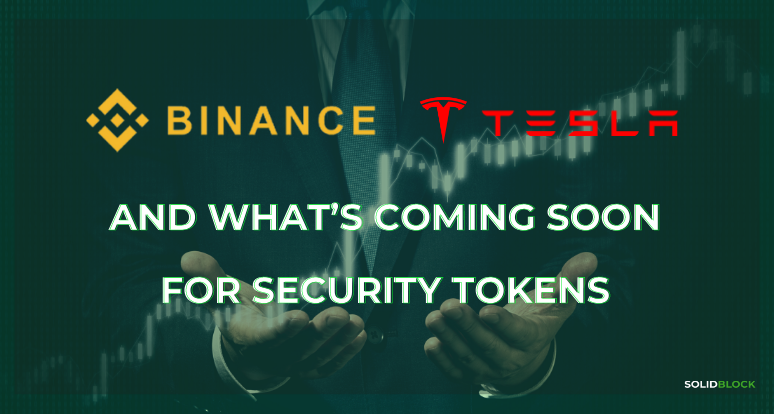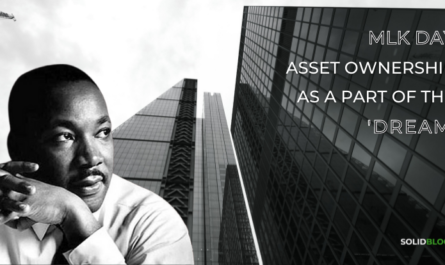
Binance, the cryptocurrency exchange platform, recently announced that it will allow users to trade tokenized stock tokens, starting with Tesla (TSLA), the electric car company. This means that users of the exchange platform can now buy fractions of the company’s shares, with the launch of a new tokenized stock trading service.
Since April 12, 2021, users have been able to buy fractions of Tesla shares, which were trading at $677 a share at the time and at the time of writing had increased significantly. One Tesla stock token represents one share of the company. However, Binance’s Stock Tokens, digital tokens with zero commission, enable users to purchase as little as one-hundredth of a Tesla share with prices set in Binance USD, a stablecoin pegged to the value of the US dollar. These digital tokens are available to all users except those who are residents of the US, mainland China, Turkey, and other restricted jurisdictions — and will qualify holders for returns, including dividends.
This past May, it was reported that Binance is under review by the US Justice Department for security violations in its issuance of Tesla shares. This prompted a significant drop in the value of Bitcoin (though it has since rallied), and an announcement from Elon Musk that Tesla cars cannot be bought with Binance tokens.
Binance is not the first crypto exchange to venture into the space of tokenized stock trading. As with FTX and Bittrex Global, Binance has also partnered with German financial firm CM Equity AG and Switzerland-based tokenization firm Digital Assets AG for the service.
“Stock tokens demonstrate how we can democratize value transfer more seamlessly, reduce friction and costs to accessibility, without compromising on compliance or security,” said Binance CEO Changpeng Zhao.
Why Binance decided to launch the platform with Tesla stock
It is not entirely clear why Binance launched its platform with Tesla stock, however, Tesla did a 5-for-1 stock split last year (in which the number of stocks increases, but the value of each one remains the same) to make its stock cheaper. The electric carmaker also took some serious steps into the cryptocurrency space when it invested $1.5 billion in Bitcoin in February and started accepting Bitcoin as payment for its electric cars in April 2021. .
“Binance Stock Tokens are zero-commission digital tokens fully backed by a depository portfolio of underlying securities that represents the outstanding tokens. Holders of stock tokens qualify for economic returns on the underlying shares, including potential dividends,” explained a Binance spokesperson. “We are making it possible for users to trade fractions of a unit of publicly tradable equities, turning them into more affordable units that have lower barriers of entry.”
Trades of these stock tokens are executed in real-time. Hence, trading of stock tokens follows the underlying stocks’ traditional trading hours. To begin the stock tokens service, Binance users have to go through Know-Your-Customer (KYC) procedures, including submitting identity documents and completing facial recognition verification.
The company said it would list more stock tokens in the future, according to market demand. Binance is the largest crypto exchange in the world, with $500 million in daily trading volume since early 2019.
Security tokens are digital assets that represent legal ownership rights in real world assets, such as stocks, commodities or in the case of SolidBlock, real estate — unlike utility tokens (such as Ethereum and XRP, which entitle the owner to use a function, product or service provided the token issuer).
This recent move by Binance has the potential to blow the entire cryptoasset and DeFi world wide open, including what seems to be a rosy future for a range of tokenized assets.
Buying a fractional share
SolidBlock is involved in the tokenization of real estate assets through a securitizing and digitizing process. First an asset is divided into shares that can be sold to investors; and second, these securities (tokens) are digitized and issued on the blockchain.
We believe that real estate tokenization is a true bridge to a decentralized financial system.. This includes the ownership of real world assets such as real estate on the blockchain (security tokens). Tokenization will transform the way real estate is traded. With time, there will be more access to these types of asset tokens by a wider swath of the population. This will ensure a step towards a decentralized financial system.

 by
by 

